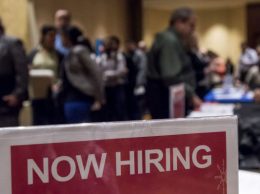Updated at 12:05 p.m. April 24:
When a Plains All American pipeline broke, spilling 142,000 gallons near Refugio Beach two years ago, few would have foreseen the unintended consequence that played out in a Delaware bankruptcy court on April 17.
Venoco, a capable operator and the largest corporate taxpayer in Santa Barbara County, announced it was abandoning its South Ellwood Field and turning ownership of Platform Holly, one of the oil industry’s most visible facilities, back to the State Lands Commission.
The reason is quite simple — since the pipeline breach, federal regulators have shut not only the broken pipeline, known as 901, but also a longer, 128-mile pipeline that connects the output from Platform Holly to Kern County, where the oil can be shipped for sale to a willing buyer.
Venoco, an independent operator that is privately owned, did not have the financial strength to sustain an extended period of no operations. It will lay off workers, hunker down and sell off its operations in federal waters off the coast of Carpinteria. It will exist as an organization whose principal asset may be its claim against Plains All American for damages resulting from the oil spill.
Not too many years ago, Venoco got the output from Platform Holly to market by shipping the oil to a storage tank off the coast of Goleta, where barges from Los Angeles hauled the crude to market. Regulators and the company agreed at the time that shipping oil by barge posed safety risks that would be dramatically lessened via pipeline shipment. The barging ended when Venoco got the green light to tie its operations into a pipeline, a move that turned out to be far riskier than Venoco or the environmental community ever imagined.
Venoco will go to court and it may win a big settlement but those who lost their jobs have much less recourse. Environmentalists are applauding the end of a large fossil fuel operation on the Central Coast but taxpayers will pick up some of the tab for decommissioning and maintenance.
Meanwhile, Santa Barbara County already is facing a $30 million-plus budget shortfall and it will have to cope with the long term impact of lost tax revenue.
DECOMMISSIONING WILL TAKE TIME
Venoco’s decision to decommission Platform Holly and return it to the state drew an immediate response from the State Lands Commission, which had been considering a plan to re-drill a number of wells at the field.
According to a statement on the Lands Commission website, commission staff will begin a bidding process to hire a manager for the decommissioning process and the dismantling of piers and platforms and the possible removal of the platform. The process could take as long as three years.
In an editorial in the Feb. 17 edition of the Business Times, we incorrectly identified one of the members of the commission. She is State Controller Betty Yee.
CONDOLENCES TO BROWN FAMILY
Our partners at KCLU radio reported early on April 19 that Dr. Harry Brown, the founder of SEE International, had passed away after a battle with cancer.
Brown, 86, was a pioneering eye surgeon whose nonprofit provided care to 3.8 million people in its 40-year history. Brown’s work in India, Afghanistan and some 80 countries made him a quiet but determined hero.
Our best wishes to his family and the folks at SEE International.






 Print
Print Email
Email

















